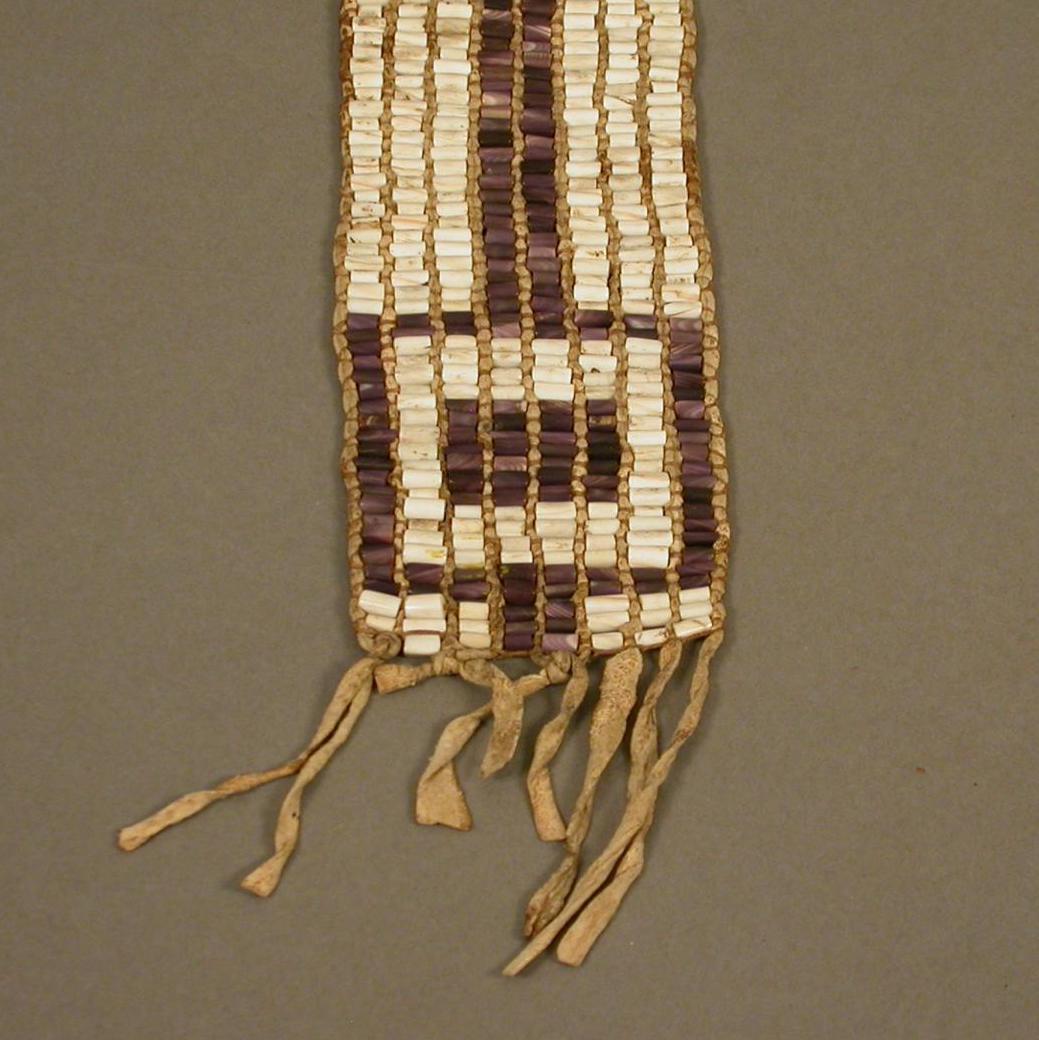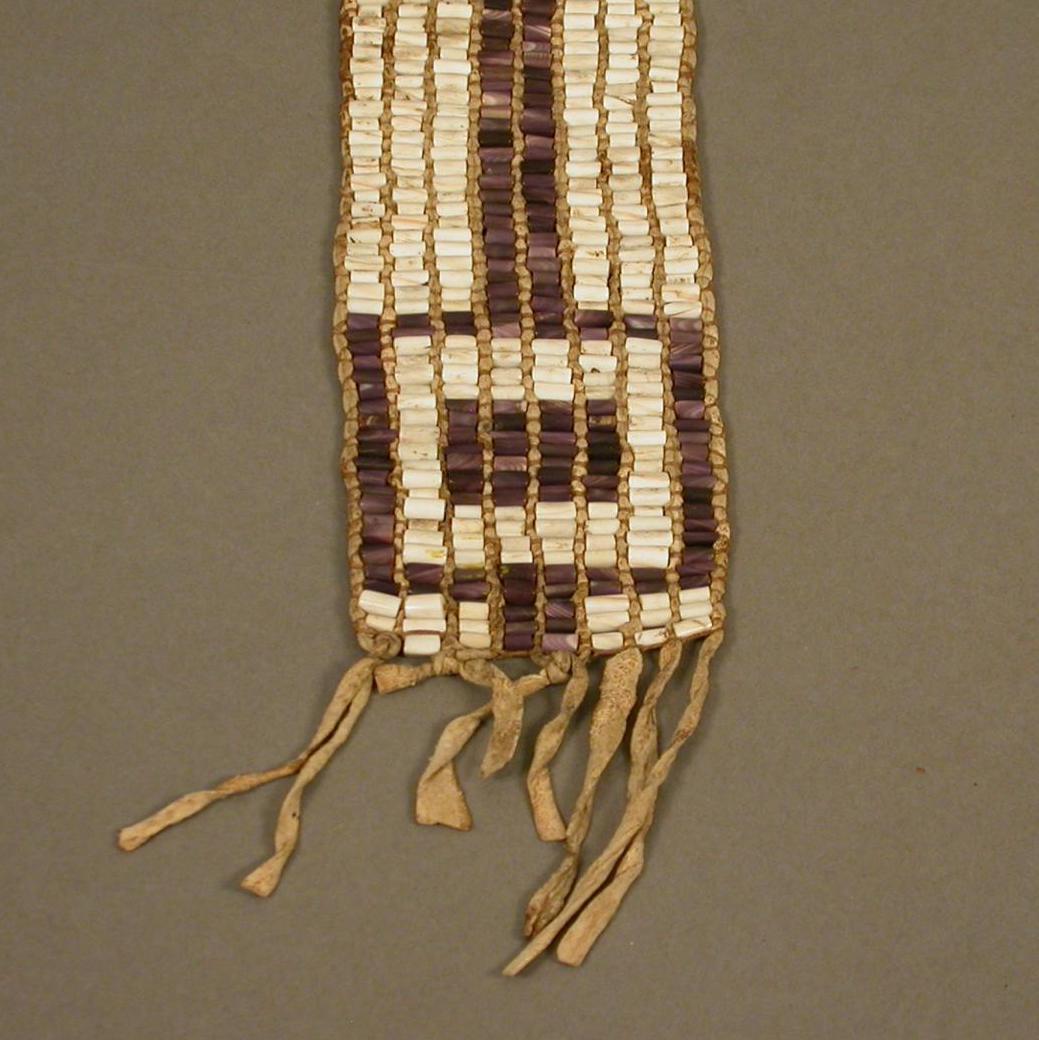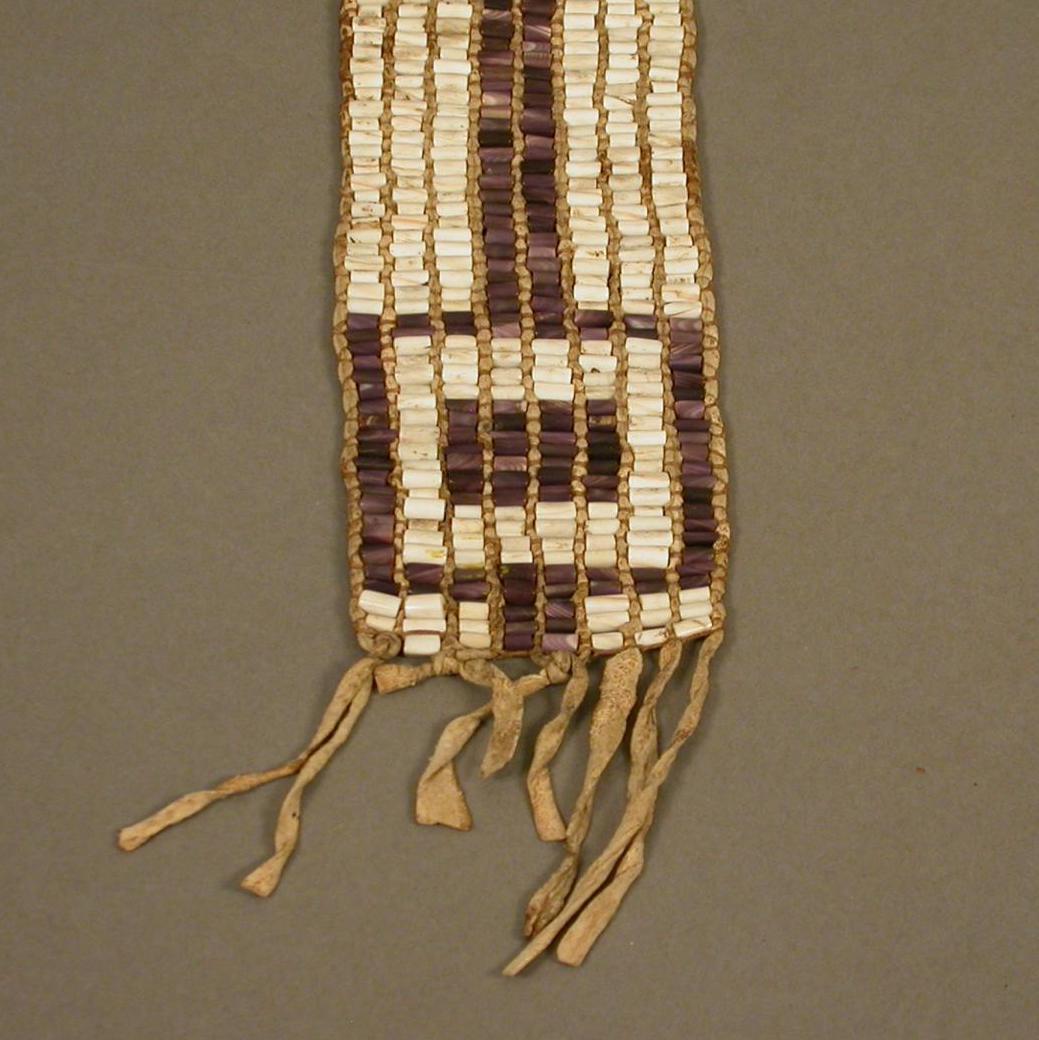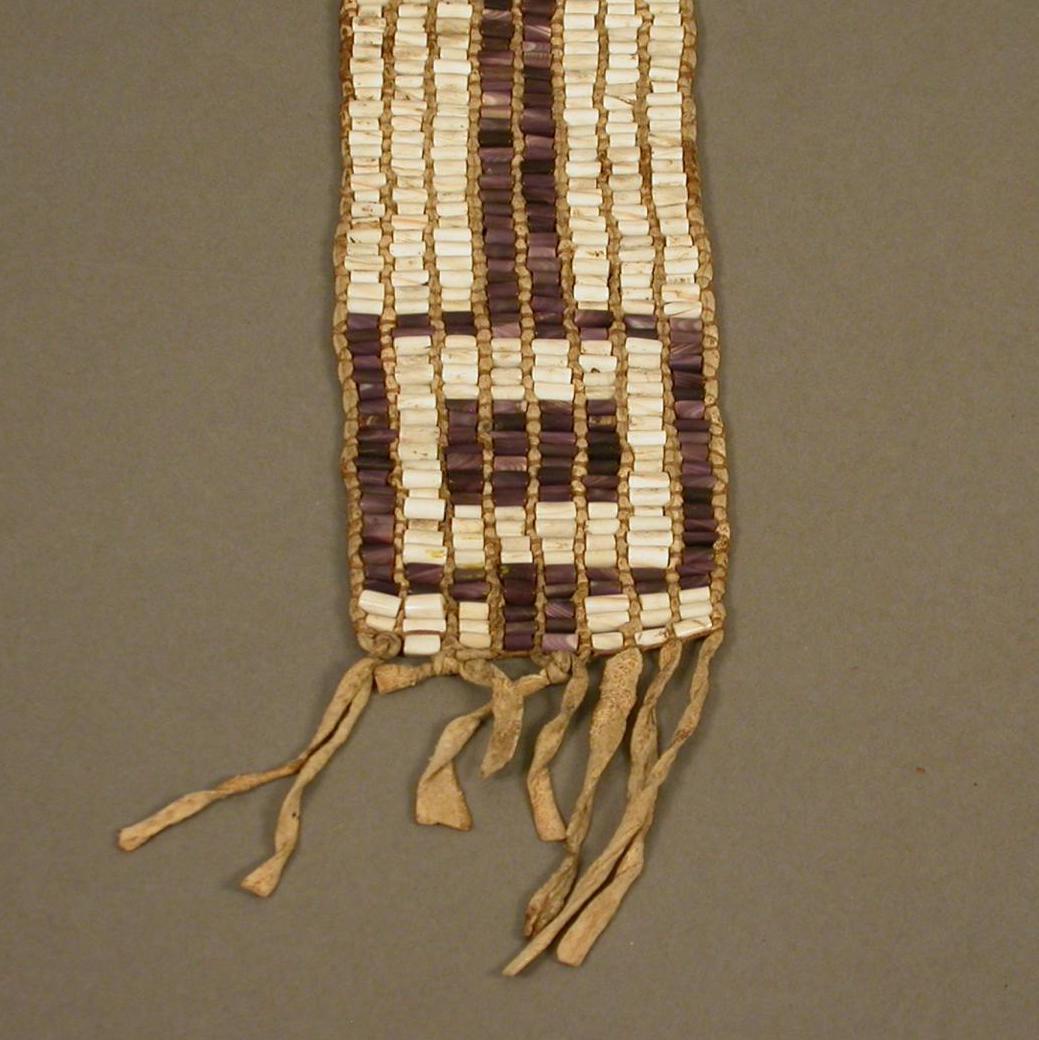*For Zoom information, please please contact Aylin Malcolm.
Our speaker writes:
Indigenous Native American and First Nations wampum belts — woven together with whelk and quahog shell beads, plant fibers, and leather strands — have long been created to encode and communicate tribal relations and diplomatic understandings. During the colonial era, wampum belts also operated in concert with written documents to record alliances among colonial settlers and Indigenous nations. In museums, however, historical wampum belts were often detached from the relations and texts that gave them meaning, and displayed as mysterious objects evoking fractured connections. In this talk, I discuss strategies for recovering object histories through material analyses, comparative studies, archival research, and critical re-assessments of museum interpretations that rendered Indigenous objects as strangers to themselves. Some memories can be reawakened through nuanced studies of material details and consultations with Indigenous knowledge-holders. Some objects can also be illuminated by locating contemporaneous texts (correspondence, oral traditions, etc.) that testify to their intended use. This case history focuses on an iconic 18th century “Path Belt” (item # NA9143) housed in the Penn Museum, acquired from an antiquities collector in 1920. Although only vaguely identified in exhibitions as “Iroquois,” the design and intentions woven into this particular wampum belt are meticulously well-documented in 18th century missionary reports that describe its use by Indigenous tribal leaders.
About our speaker:
Dr. Margaret M. Bruchac, in her multi-modal career as an ethnographer, historian, archaeologist, museum consultant, and performer, has long been committed to restorative interpretations of colonial and Indigenous history and material culture. At the University of Pennsylvania, Dr. Bruchac is an Associate Professor of Anthropology, Associate Faculty in the Penn Cultural Heritage Center, and Coordinator of Native American and Indigenous Studies. Her 2018 book — Savage Kin: Indigenous Informants and American Anthropologists (University of Arizona Press) — received the inaugural Council for Museum Anthropology Book Award. She directs a wide-ranging research project — “The Wampum Trail” — that focuses on the history, meaning, materiality, curation, revitalization, and repatriation of historical wampum objects in museums. Her wampum research articles include: “Broken Chains of Custody: Possessing, Dispossessing, and Repossessing Lost Wampum” in the Proceedings of the American Philosophical Society 162 (1) (March 2018): 56–105; “Visions of War: A 17th Century War Club Embedded with Wampum” in Historic Deerfield 18 (Autumn 2020): 40–45; and, with Dr. Laura Peers, “Recovering Wampum in English Museums: The Search for Metacom’s Belts” in the Journal of Museum Ethnography 34 (March 2021): 113–126.
Talks will be held live, in person, in the Class of 78 Pavilion, 6th floor, Van Pelt-Dietrich Library. They will also be available via Zoom (please contact us for details). All are welcome. If you would like to receive details on future talks, please sign up for our listserv using this link or visit the Workshop website.
The Workshop in the History of Material Texts is supported by the School of Arts and Sciences through the Department of English and hosted by the Penn Libraries. The co-directors of the seminar are Professor Zachary Lesser (English), Jerry Singerman (Penn Press, Emeritus), and John Pollack (Kislak Center, Penn Libraries).
Associated with the workshop is the book series in Material Texts published by the University of Pennsylvania Press, which includes many monographs that have emerged from presentations given at the workshop over the years.
For more information, please contact Aylin Malcolm.




